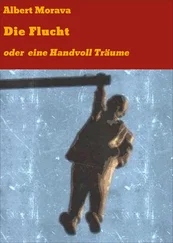“Good boy,” Saro said, “stay there. Now we’re taking the boat out.”
“Wait for me, I’m coming, too,” shouted the black boy from the shore. Panting, he jumped into the water, nearing the boat and grabbing onto one side. But Saro said, “No, you’re not coming.”
“How am I supposed to get there?” the boy cried in distress. “How am I supposed to get there?”
“Take the streetcar,” Saro replied, rowing vigorously from an upright position. “You’ll get there before us.”
“Why, Saro?” the boy insisted plaintively, running in the water beside the boat. “Why, Saro? I’m coming, too.”
Without saying a word, Saro set the oars down, bent forward, and placed an enormous wide hand over the black boy’s face. “I said you’re not coming,” he repeated calmly, and with a single thrust shoved the boy back into the water. “Why, Saro?” The boy continued to cry, “Why?” and his plaintive voice, amid the splashing of the water, sounded unpleasant to Agostino’s ears, filling him with a vague pity. He looked at Saro, who smiled and said, “He’s so annoying. What were we supposed to do?”
When the boat was farther from the shore. Agostino turned and saw the black boy emerging from the water and shaking his fist in a threatening gesture that seemed directed at him.
Without saying a word, Saro pulled the oars in and laid them on the bottom of the boat. He went toward the stern and tied the sail to the boom, stretching it out. The sail fluttered indecisively for a moment, as if the wind were battering it from both sides, then all of a sudden, it turned starboard with a loud snap, tightening and billowing out. Obediently, the boat also tilted starboard and started to skip over the light playful waves lifted by the mistral wind. “We’re good,” said Saro. “Now we can lie down and rest a while.” He dropped down to the bottom of the boat and invited Agostino to join him. “If we sit on the bottom,” he explained, “the boat goes faster.” Agostino did the same and found himself sitting on the bottom of the boat, next to Saro.
The boat sailed smoothly despite its potbellied shape, tilting to one side, going up and down on the waves and occasionally rearing like a colt chafing at the bit. Saro was reclining with his head on the seat and one arm slipped below Agostino’s neck to control the tiller. For a while he said nothing. “Do you go to school?” he finally asked.
Agostino looked at him. Lying on his back, Saro seemed to be voluptuously exposing his nose with its inflamed flared nostrils to the sea air, as if to refresh them. His mouth was half open beneath his mustache, his eyes half closed. Through his unbuttoned shirt you could see the hairs, gray and dirty, rustling on his chest. “Yes,” said Agostino, with a shiver of unexpected fear.
“What year are you in?”
“The third year of middle school.”
“Give me your hand,” said Saro, and before Agostino could refuse, he grabbed hold of it. Agostino felt like he was trapped not by a hand but by a snare. The six short stubby fingers covered his hand, circled it, and joined below it. “And what do they teach you,” Saro continued, getting into a better position and sinking into a sort of bliss.
“Latin… Italian… geography… history,” Agostino stuttered.
“Do they teach you poetry, any nice poems?” Saro asked in a soft voice.
“Yes,” said Agostino, “they also teach us poetry.” “Tell me one.”
The boat reared up, and Saro, without moving or modifying his blissful pose, gave the tiller a shove. “Uh, I don’t know,” said Agostino, frightened and embarrassed, “they teach me lots of poems. Carducci…”
“Ah, yes, Carducci…” Saro repeated mechanically. “Tell me a poem by Carducci.”
”By the Sources of Clitumnus,” Agostino proposed, horrified at the hand that would not release its grip and trying slowly but surely to break it.
“Yes, By the Sources of Clitumnus,’ Saro said in a dreamy voice.
With an unsteady voice, Agostino began:
“Still, Clitumnus, down from the mountains, dark with
Waving ash trees, where ’mid the branches perfumed…*
The boat skipped along, Saro was still on his back, nose to the wind, eyes closed, making gestures with his head as if he were scanning the verses. Suddenly clinging to the poem as if it were the only means of avoiding a conversation he sensed would be compromising and dangerous, Agostino continued to recite slowly and clearly. All the while he tried to free his hand from the six fingers clutching it, but the grip was tighter than ever. He was terrified to realize that the end of the poem was approaching, so to the last stanza of By the Sources of Clitumnus he appended the first line of “Before San Guido.” It was also a test, as if he needed one, to confirm that Saro didn’t really care about poetry and had another very different purpose in mind. What exactly that was he could not quite understand. And the test was successful. “The cypresses which still to Bolgheri run stately and tall…” sounded jarring, but Saro gave no indication he had noticed the change. So Agostino interrupted his recital and said in exasperation, “Would you please let go?” while trying to free himself.
Saro was startled, and without letting go he opened his eyes, turned, and looked at Agostino. In the boy’s face there must have been such wild-eyed repulsion, such barely concealed terror, that Saro seemed to realize immediately that his plan had failed. Slowly, finger by finger, he released Agostino’s aching hand and said in a low voice, as if he were speaking to himself, “What are you afraid of? Now I’m going to bring you to shore.”
He pulled himself up heavily and gave a push to the tiller. The boat turned toward the shore.
Without saying a word, Agostino got up from the bottom of the boat, rubbing his aching hand, and went to sit in the bow. As they approached the shore, he could see the whole beach, which was quite wide at that point, and its white, deserted, sun-beaten sand. Beyond it, the pine grove was thicker, tilting, purplish. Rio was a V-shaped crevice in the dunes. Farther up, the reeds formed a blue-green smudge. But in front of Rio, he noticed a group of figures gathered from whose midst a wisp of black smoke rose to the sky. He turned to Saro, who was sitting in the stern adjusting the tiller with one hand, and asked, “Is that where we’re landing?”
“Yes, that’s Rio,” Saro replied indifferently.
As the boat approached the shore, Agostino saw the group around the fire suddenly break up and run toward them. He realized it was the gang. He saw them waving. They must have been shouting something, but the wind carried their voices away. “Is it them?” he asked anxiously.
“Yes, it’s them,” Saro said.
The boat got closer and closer to shore and Agostino could discern the boys clearly. No one was missing: Tortima, Berto, Sandro, and all the others were there. And in a discovery he found unpleasant, though he didn’t know why, so was Homs. Like the others, he was jumping up and down and shouting by the water.
The boat sailed straight to the beach, then Saro gave a shove to the tiller, turning it sideways. Rushing at the sail, he gathered it in his arms, shortened it, and lowered it. The boat rocked from one side to the other in the shallow water. From the deck of the boat Saro picked up an anchor and threw it overboard. “We’re getting out,” he said. He climbed out of the boat and waded through the water to the boys waiting for him on the shore.
Agostino saw them crowding around and applauding, which Saro welcomed with a shake of the head. Another louder round of applause greeted his own arrival, and for a moment he fooled himself into believing it was friendly and polite. He realized immediately that he was wrong. Everyone was laughing, sarcastic, and contemptuous. Berto shouted, “So, our little Pisa likes to go on boat rides,” and Tortima made a face, bringing his hand to his mouth. The others echoed their behavior. Even Sandro, usually so reserved, seemed to view him with contempt. Homs, instead, was leaping around Saro, who walked on ahead toward the fire the boys had lit on the beach. Shocked and vaguely alarmed, Agostino went with the others to sit by the fire.
Читать дальше












